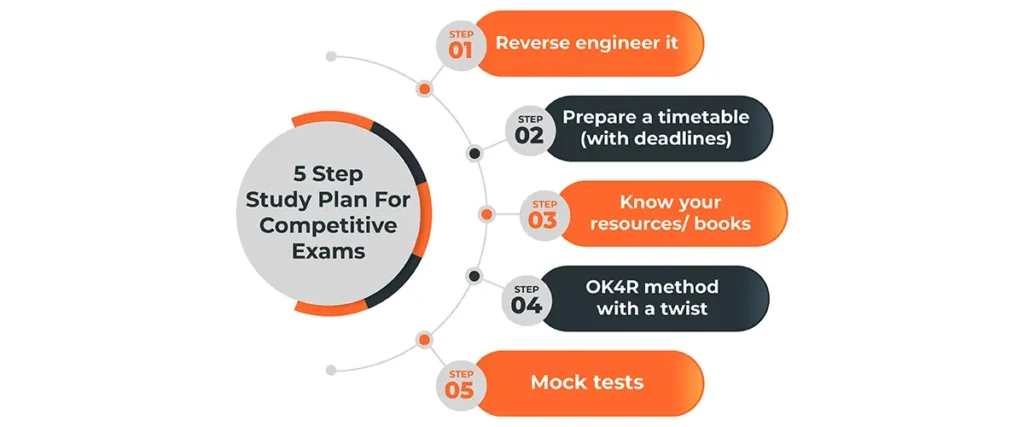A Comprehensive Guide to Competitive Exams Around the Globe

Understanding Competitive Exams
Competitive exams are structured assessments designed to evaluate candidates on their knowledge, skills, and suitability for specific academic or professional pursuits. These exams serve as a crucial filtering mechanism, allowing institutions to gauge the competencies of applicants against a standardized benchmark. Across various fields, competitive examinations play a significant role in determining an individual’s potential and readiness for further education or specific career paths.
The significance of competitive exams varies by region and discipline but generally reflects a universal intent to identify the most qualified individuals. In many countries, such as India, the United States, and China, these examinations are pivotal in shaping a candidate’s academic trajectory and employment opportunities. For instance, entrance examinations for universities and professional colleges measure not only academic knowledge but also critical thinking and problem-solving skills. These assessments often cover core subjects relevant to the intended course of study, ensuring that candidates possess a foundational understanding necessary for success.
Furthermore, competitive exams are prevalent in professional sectors, notably in fields like medicine, engineering, law, and civil service. Here, the stakes can be particularly high, as performance in these examinations can determine one’s career trajectory and financial stability. In many cases, these exams assess a wide range of skills, from technical knowledge to emotional intelligence, thereby offering a comprehensive evaluation of each candidate’s capabilities.

The global landscape of competitive exams is diverse, with varying formats and criteria depending on the country and the examining body. They may be conducted as single-day tests or as part of a series of assessments that span multiple stages. Moreover, the influence of technology has facilitated the rise of online examinations, making the process more accessible to a broader audience. Understanding these intricacies enriches one’s perspective on the importance and evolving nature of competitive exams worldwide. Click to check about payment methods available at sonic.
Types of Competitive Exams
Competitive exams play a crucial role in assessing candidates’ knowledge, skills, and suitability for various educational and professional paths. These exams can be broadly categorized into different types, each designed to serve specific purposes. The main types of competitive exams include:
1. Entrance Exams for Higher Education
These examinations are typically conducted for students seeking admission to universities or colleges. They assess a candidate’s aptitude across various subjects pertinent to their chosen field of study. For instance, the SAT (Scholastic Assessment Test) is widely recognized in the United States, while the JEE (Joint Entrance Examination) is critical for engineering aspirants in India. Such exams are essential as they help institutions gauge the readiness of students for academic challenges ahead.
2. Professional Certification Exams:
To enter specific professions or advance in one, individuals often must pass certification examinations. These assessments validate a candidate’s knowledge and skills relevant to a profession. Examples include the CPA (Certified Public Accountant) exam for accountants and the PMP (Project Management Professional) certification for project managers. Such certifications not only enhance individual credibility but also help maintain industry standards.
3. Civil Services Examinations:
Aimed at selecting candidates for government services, these exams assess an aspirant’s knowledge of general studies, current affairs, and administrative capabilities. In many countries, such as India, civil services exams like the UPSC (Union Public Service Commission) are highly competitive and regarded as prestigious. They often require rigorous preparation and lead to significant responsibilities in public administration.
Understanding these categories helps candidates choose the right direction for their studies and career development. Each type serves a dual purpose, evaluating individual capabilities while ensuring that institutions select the most qualified candidates for their programs or positions.
Regional Overview of Competitive Exams
Competitive exams have emerged as crucial benchmarks for academic and professional success globally, with varying importance across different continents. In North America, standardized tests such as the SAT and ACT are predominantly used for college admissions, influencing students’ higher education paths. Additionally, the Graduate Record Examination (GRE) and the Law School Admission Test (LSAT) serve as gateways to graduate and law schools, respectively.
In Europe, the landscape of competitive exams varies significantly between countries. For instance, countries like Germany employ the Abitur, a school-leaving examination required for university entrance. Similarly, the UK utilizes A-levels as a preparatory path for higher education. Furthermore, some European nations also require entrants to take additional assessments, such as the European Baccalaureate or the International Baccalaureate, enhancing the competitive nature of academic applications.

Asia presents a diverse range of competitive exams with significant cultural and educational implications. In India, the Joint Entrance Examination (JEE) and the National Eligibility cum Entrance Test (NEET) stand out as critical assessments for engineering and medical college admissions, respectively. These exams are known for their rigor and the extensive preparation they necessitate from students. In contrast, East Asian countries like South Korea and China utilize the College Scholastic Ability Test (CSAT) and the Gaokao, further intensifying the competition among aspirants.
African nations demonstrate a mix of formal examinations and alternative assessment routes tailored to their unique educational systems. The West African Senior School Certificate Examination (WASSCE) is a notable example that serves several countries in this region, but access to quality preparation and resources often varies significantly. Similarly, in Oceania, Australia conducts the Higher School Certificate (HSC) and the Victorian Certificate of Education (VCE) that dictate university admissions, impacted by the regional nuances in educational frameworks.
Understanding the landscape of competitive examinations worldwide is vital for aspiring candidates, as they navigate the unique challenges and opportunities that distinct regions present.
Preparation Strategies for Competitive Exams
Effective preparation for competitive exams is crucial for candidates seeking to maximize their performance and achieve desirable outcomes. Establishing a well-structured study schedule is one of the fundamental steps in the preparation process. A comprehensive timetable allows candidates to allocate sufficient time to different subjects, ensures a balanced approach to studying, and helps avoid last-minute cramming. It is advisable to break down the syllabus into manageable portions and assign specific topics to each study session, ensuring regular revision.
In addition to a study schedule, selecting appropriate resources plays a vital role in exam preparation. Candidates should opt for a combination of textbooks, online courses, and study guides that align with the exam format. Utilizing diverse materials can provide a broader understanding of concepts and help reinforce learning. Many candidates find it beneficial to join study groups or online forums where they can exchange resources and discuss challenging topics, thereby enhancing their grasp of the subject matter.
Another significant aspect of exam preparation is the utilization of practice tests. Simulating exam conditions with timed practice papers not only familiarizes candidates with the exam format but also aids in identifying areas that require further attention. Regularly conducting self-assessments helps track progress and improves confidence as the exam date approaches. Incorporating practice questions and previous years’ papers can also provide insights into recurring themes and question patterns.
Lastly, managing test anxiety is essential for optimal performance. Strategies that include deep breathing exercises, mindfulness, and maintaining a healthy lifestyle can help mitigate stress levels. Candidates should ensure they get adequate rest, maintain a balanced diet, and incorporate regular physical activity into their routines. By focusing on these effective preparation strategies, candidates can position themselves for success in their competitive exams.
Key Competitive Exams Across the World
Competitive exams play a vital role in determining the educational pathways and career prospects of students globally. Among the myriad of assessments, some stand out due to their widespread recognition and impact. The SAT (Scholastic Assessment Test) is one of the most recognized standardized tests in the United States, primarily used for college admissions. This exam assesses critical reading, mathematics, and writing skills, with scores typically ranging from 400 to 1600. It serves as a gauge of a student’s readiness for college and is a significant factor in admission decisions.
Another prominent exam is the GRE (Graduate Record Examination), which is essential for those seeking admission to graduate schools, particularly in the United States. The GRE evaluates verbal reasoning, quantitative reasoning, and analytical writing across a scoring scale of 130 to 170 for the general test. The significance of the GRE lies in its role in helping institutions assess applicants from diverse educational backgrounds.
The GMAT (Graduate Management Admission Test) is tailored for aspiring business school students. It measures analytical, writing, quantitative, verbal, and reading skills, particularly in the context of business and management. With scores ranging from 200 to 800, the GMAT is a key factor in admissions decisions for MBA programs and is widely accepted by business schools worldwide.
In India, the UPSC (Union Public Service Commission) civil services examination is a critical assessment for those pursuing a career in the civil services. Comprising preliminary, mains, and interview stages, this exam tests a range of subjects and evaluates candidates’ abilities in various facets of governance and administration.
Similarly, the JEE (Joint Entrance Examination) is crucial for engineering aspirants in India. It is divided into JEE Main and JEE Advanced, focusing on physics, chemistry, and mathematics. The scores determine admissions into top engineering colleges across the nation. Each of these exams carries immense weight in shaping the academic and professional futures of students, reflecting their potential and preparedness for higher education and beyond.
Impact of Technology on Competitive Exams
Technology has significantly transformed the landscape of competitive exams worldwide, introducing innovative formats and methodologies that enhance both efficiency and accessibility. One of the most notable changes is the rise of online testing platforms. These platforms allow candidates to take examinations from various locations, eliminating the need for physical venues. This shift not only streamlines the testing process but also accommodates a wider range of participants, including those in remote areas.
Artificial intelligence (AI) is also playing a growing role in the assessment landscape. AI algorithms can analyze a candidate’s performance in real-time, providing immediate feedback and tailoring questions to match skill levels. This approach, known as adaptive testing, offers a personalized experience that traditional exams cannot. By dynamically adjusting the difficulty of questions based on student responses, adaptive tests can more accurately assess a candidate’s competency and knowledge level, fostering a more equitable evaluation process.
However, while the integration of technology into competitive exams presents numerous benefits, it is not without its drawbacks. Issues such as internet connectivity, the digital divide, and software reliability can disproportionately impact candidates from different socioeconomic backgrounds. Furthermore, the reliance on technology raises concerns over data privacy and the potential for cheating. With sophisticated tools available for unauthorized assessments, ensuring the integrity of online examinations becomes a paramount challenge.
In addition, the shift towards technology-enhanced testing methodologies prompts a reevaluation of traditional skills. As students adapt to online formats, there is a growing concern regarding the erosion of core skills such as time management and handwritten communication. Therefore, while technology serves as a powerful tool in refining competitive exams, stakeholders must carefully consider its implications and work towards a balanced integration that upholds the values of fairness and accessibility.
Challenges Faced by Candidates
Preparing for competitive exams poses various challenges for candidates, often influenced by socioeconomic factors, access to resources, mental health issues, and the intense nature of competition. Socioeconomic barriers frequently hinder many candidates from pursuing their educational goals. Individuals from lower-income families may face financial difficulties that limit their access to quality preparatory materials, coaching centers, and even basic educational resources. This disparity can create a significant gap in preparedness, affecting their chances of success.
Access to resources is another substantial hurdle. Many candidates find themselves in situations where they lack study materials or adequate guidance, which can hinder their ability to perform well. Online resources have increased access to information; however, not all candidates possess the necessary technological tools or internet connectivity to benefit from these avenues. This lack of resources ultimately affects their preparation and can have long-term implications on their career aspirations.
Mental health issues also play a critical role in the candidacy for competitive exams. The pressure to excel can lead to anxiety, stress, and burnout among candidates. The overwhelming competition often results in candidates doubting their abilities, which can negatively impact their performance during exams. In today’s educational environment, it is crucial to recognize and address these mental health challenges to foster a healthier preparation process.
Finally, the sheer volume of candidates competing for a limited number of seats in prestigious institutions creates a highly competitive atmosphere. This challenge can be daunting, further contributing to the stress and anxiety experienced by candidates. Institutions and society play an essential role in mitigating these challenges through supportive measures such as providing scholarships, mental health resources, and creating awareness about inclusive education. By addressing these barriers, candidates can be better equipped to navigate the complexities of preparation for competitive exams.
Future of Competitive Exams
As we look towards the future of competitive exams, a notable trend is the shift from traditional assessment methods to more holistic approaches. This change is driven by the growing recognition that academic achievement alone does not adequately measure an individual’s capabilities or potential contributions to society. Modern educational philosophies advocate for evaluations that include emotional intelligence, creativity, and critical thinking skills. As such, competitive exams may increasingly incorporate diverse assessment formats, such as project-based evaluations and peer reviews, to provide a more comprehensive view of a candidate’s aptitude.
The impact of globalization also plays a significant role in shaping the future landscape of competitive exams. As educational institutions and employers increasingly seek talent on a global scale, standardization of exam formats across borders is becoming prevalent. This globalization trend may lead to the emergence of international competitive exams, where students from different countries participate in standardized assessments that are recognized worldwide. Such exams will likely demand a curriculum that emphasizes not only academic proficiency but also cross-cultural competencies, making candidates more adaptable and prepared for a global workforce.
Additionally, shifts in educational philosophy, particularly towards learner-centered strategies, may further transform the significance of competitive exams. As educators place greater emphasis on individualized learning experiences, skills development, and fostering self-directed learning, competitive exams could evolve to become just one of many ways to assess a student’s readiness for higher education and future career roles. In this environment, exams may be perceived as tools for personal growth rather than mere gatekeepers to educational opportunities. The combination of these trends suggests a dynamic transformation in the structure and function of competitive exams as we navigate through the 21st century.
Conclusion and Final Thoughts
Throughout this guide, we have explored the significance of competitive exams across various contexts globally. Competitive examinations serve as pivotal assessment tools in determining the knowledge, skills, and readiness of candidates for higher education and professional environments. These assessments are not merely academic hurdles; they are instrumental in shaping the future of individuals and, by extension, the workforce of nations.
We examined a variety of competitive exams, ranging from university entrance assessments to professional licensure tests, highlighting their role in maintaining standards in education and employment. These exams often represent a convergence of effort and opportunity, offering candidates a chance to showcase their abilities in a structured and standardized manner. For many students, these assessments are the stepping stones to prestigious universities or desirable job positions, accentuating the need for thorough preparation and strategy.
Moreover, competitive exams contribute to the evolution of educational frameworks worldwide. They compel educational institutions to adapt their curricula to better prepare students for such assessments. This alignment is crucial in fostering a knowledgeable and competent workforce that can meet the challenges of a dynamically changing global landscape. As candidates engage in rigorous study and refine their skills, they simultaneously enhance their readiness to contribute to society.
For anyone considering their journey through competitive exams, it is essential to reflect on the implications these assessments have not only on personal aspirations but also on broader societal dynamics. The experiences gained during preparation and assessment can significantly influence one’s career trajectory. Ultimately, embracing the challenge of competitive exams can lead to invaluable professional opportunities, making it a pathway worthy of consideration for many aspirants around the world.





